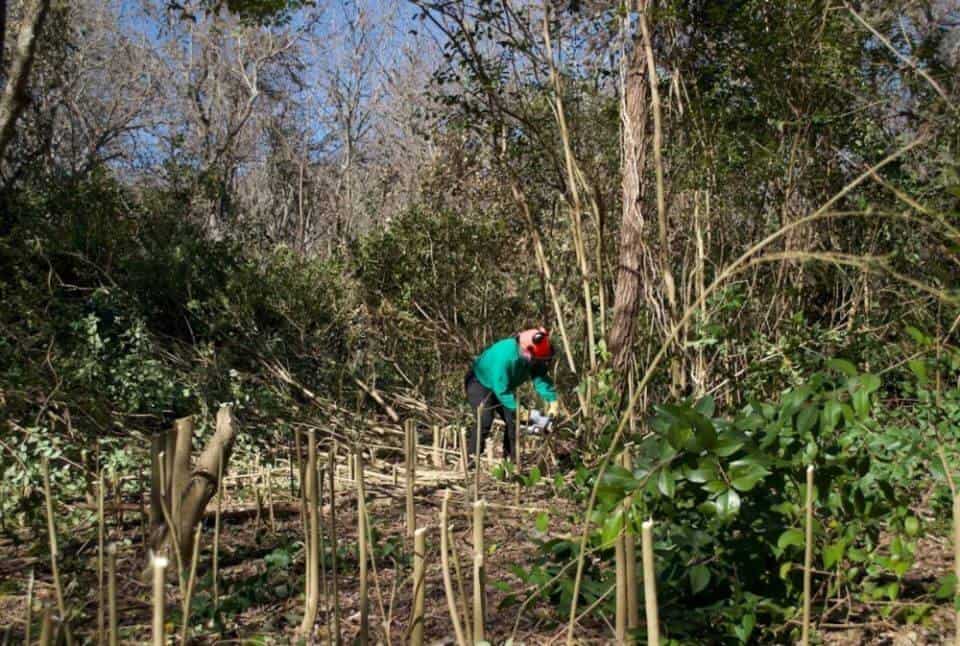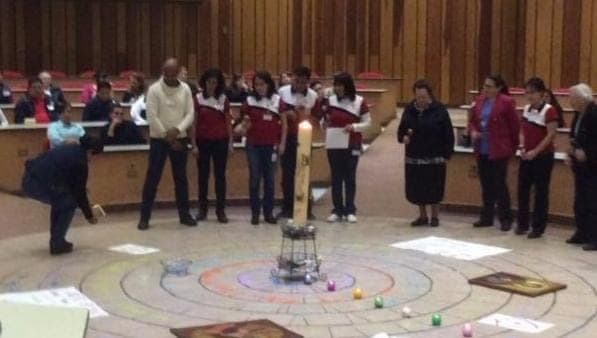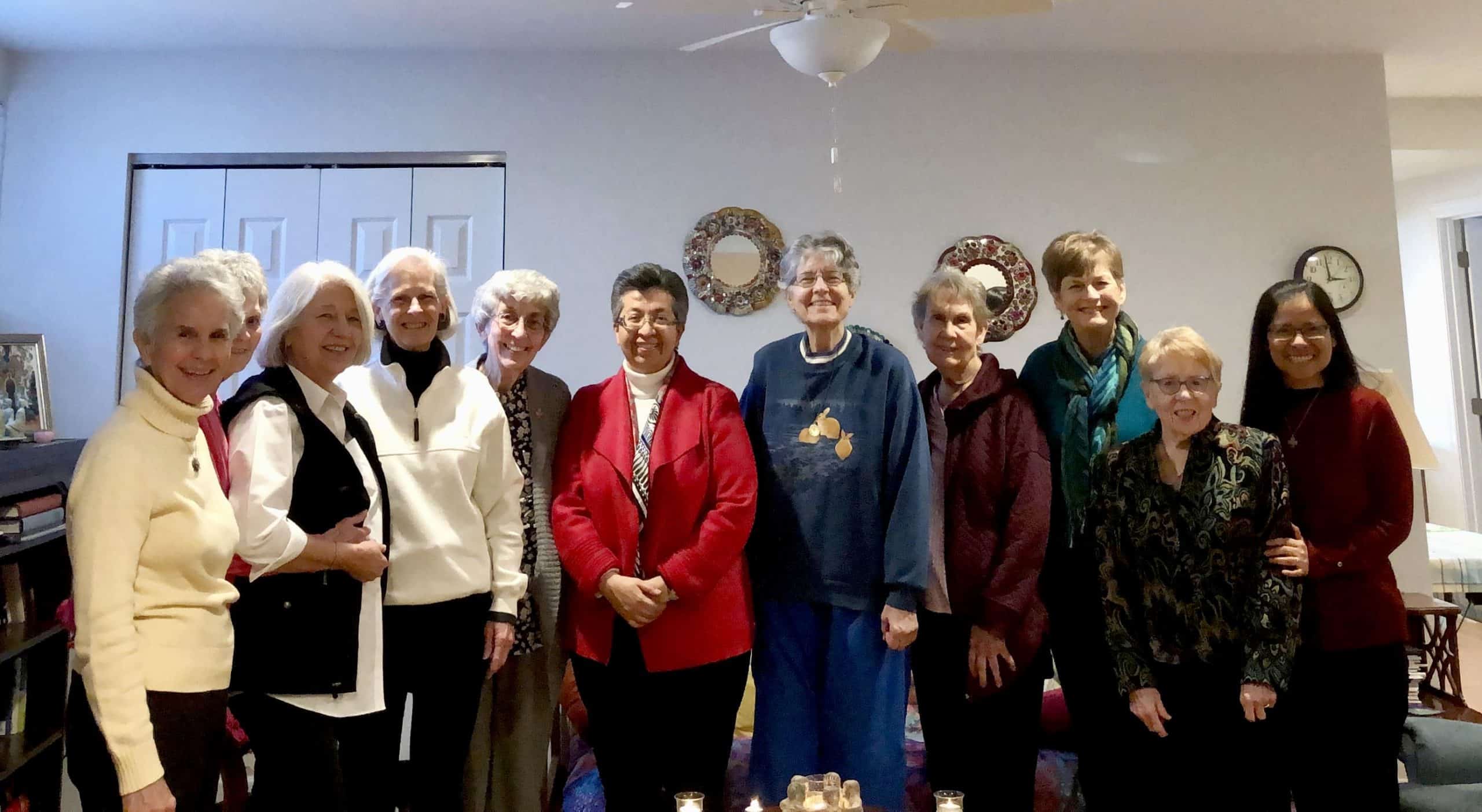Chopping down trees may seem counterintuitive to restoration, but when it’s invasive trees, it helps protect biodiversity. Volunteers are helping with that at Headwaters Sanctuary, run by the Sisters of Charity of the Incarnate Word.
We hope you enjoy reading the enclosed article about Headwaters at Incarnate Word which recently appeared in the National Catholic Reporter’s “Earth Beat” section on environmental issues. We are excited to have this national coverage for our ministry! Just click on the link below.
Behind the University of the Incarnate Word’s baseball fields in San Antonio, buzzing chainsaws can be heard every Saturday morning in a 53-acre nature preserve: the Headwaters Sanctuary. Volunteers walk down a dirt path and through dense trees to arrive at the zone they will tackle that day. Some cut down small Ligustrum trees at the base of their trunks; others drag the discarded trees into a large pile. The felled trees are then loaded onto a cart to be driven out of the sanctuary and discarded. Saw, drag, repeat.
After three hours, more than 100 tree stumps dot the land. For the first time in years, sunlight stretches through this area of thinned forest and warms the soil. The sanctuary’s only full-time staff, executive director Pamela Ball, scurries between the stumps spraying them with herbicide so the trees can’t grow back.
By noon, the field looks completely different than it did that morning — when invasive trees blocked the sunlight — but there is still a lot to do before the sanctuary can be fully restored to a natural state.
Chopping down live trees may seem counterintuitive to restoration, but it helps protect an area’s biodiversity. Removing alien species ensures an ecosystem can function properly and safeguards natural resources like soil or water. Preserving the native species in any given area helps cushion it from the effects of climate change and makes it more adaptable.
The Headwaters Sanctuary, owned by a nonprofit run by the Sisters of Charity of the Incarnate Word, is practically overrun with invasive plants — especially Ligustrum trees. The trees are native to South Florida and are harmful to the local Texas bird population. They also starve native plants of sunlight, soil and water.
(…)
Many of the Sisters of Charity of the Incarnate Word relocated to San Antonio from Galveston in the 1860s because a cholera outbreak flowed through the river, sickening San Antonio residents. The sisters opened the first hospital in the area to tend to ill patients.
“The water brought us here and it is healing,” said Sr. Yolanda Tarango, a member of the religious order. “As a congregation, one of our most important ministries is to continue that healing process and not just through the hospital or the health system. But also including the healing of nature.”
For Sr. Sarah Lennon, who helped secure the conservation easement for the sanctuary and served as a missionary for more than 60 years, caring for the Earth is integral to her ministry.
“If you have no Earth, we have no people,” Lennon said.
But for the sisters, restoring the land is also serving San Antonians. Numerous studies have shown that green spaces in urban areas can improve mental health by reducing stress and offering a setting for connecting with other people. Green spaces also reduce pollution and help protect against flooding or droughts.
“The Headwaters draw you to something beyond yourself, away from the rat race of the day,” Lennon said. “It’s healing for the whole body for people who are tired, weary and living with noise and concrete every day.”
– Alexandra Applegate
On the header: Volunteers help cut down invasive tree species in the Headwaters Sanctuary in San Antonio to restore it to its natural state that will benefit the local wildlife, picture by Alexandra Applegate.









0 Comments